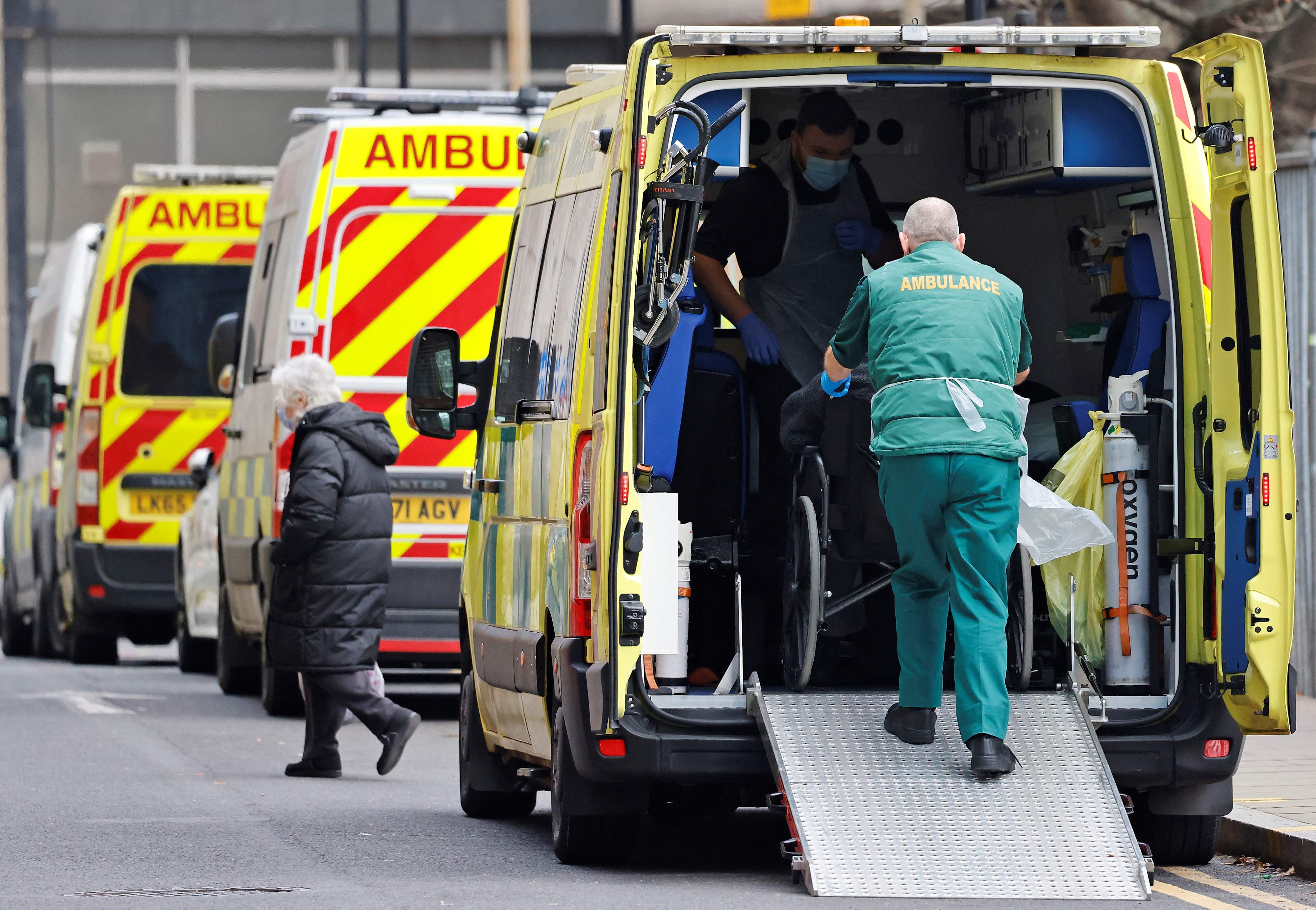Hospitals braced for ‘mass casualty’ scenario amid fears one-third of NHS staff could be off sick
Exclusive: Christmas is going ahead but ‘we’re going to suffer for it afterwards’ says senior NHS source

Hospitals in parts of England are being asked to plan for the equivalent of a “mass casualty” event in January as NHS managers fear up to one-third of staff could be off sick, The Independent has learned.
Several senior NHS sources have raised concerns that the mass absence of health workers will coincide with a peak in hospital admissions in mid-January.
No extra Covid restrictions will be put in place before Christmas, Boris Johnson announced on Tuesday as another 90,629 cases were recorded.
NHS England has asked hospitals to draw up plans to deal with a “mass casualty type scenario”, which one source described as similar to a “major incident on a grand scale”.
The Independent understands “mass casualty” means hospitals are preparing for a short but “significant” wave of admissions across the region.
This includes plans for spreading staff more thinly to tackle absence levels and using day units for overnight beds, The Independent has been told.
Meanwhile, hospital leaders in the northeast and Yorkshire have been advised to plan for a peak in admissions which could be anywhere between 70 to 200 per cent of that experienced during the first Covid wave in early 2020.
This wave will likely materialise between 4 and 14 January, The Independent has been told.
One senior healthcare leader said he feared the Omicron wave would be as bad as last year – but an even bigger worry for him was that patient infection surges are expected to “very strongly correlate with staff absence”.
He said: “The key is how the public are going to respond in terms of social interaction. In terms of Christmas coming up – a short term gain can lead to a lot of long-term pain.
“I think that’s the biggest fear without intervention and locking thing down earlier, while it may keep a lot of people happy to celebrate Christmas, we’re going to suffer for it afterwards.”
Another senior healthcare leader said their “upper” estimate of staff sickness would be 30 per cent but warned: “We think there will be a peak level of illness in mid-January and it will be both staff and public sickness. So, we’d have the greatest sickness absence at the same time as we’ve got the greatest demand.”
Two senior hospital sources in northeast England said they were also planning for staff absences to peak at 30 per cent in a worst-case scenario, in the third week in January.
NHS sources from northwest England also said the majority of hospitals were planning for a 30 to 35 per cent sickness rate in January. More than 3,000 Covid patients were admitted to hospitals in the area during the first wave in 2020.
It come as London hospitals were treating 1,904 Covid patients on Tuesday, according to data from NHS England – a rise of 41 per cent on last week.
The deputy chief executive of NHS Providers, Saffron Cordery, said: “It’s clear that Omicron is extremely infectious so it does not come as a surprise to see these figures rising across the country. While evidence is still emerging on the severity of symptoms it is right that plans are being put in place to manage a sharp rise in hospitalisations.
“This is particularly challenging as services are already working beyond full stretch, with the likelihood of further staff absences compounding existing shortages.”
She added that the understandable focus on getting booster jabs in arms was also taking “some staff away from the frontline”.
Responding to the government’s decision on Monday not to announce further Covid-19 restrictions, Ms Cordery said early indications are that the vaccines are doing their job.
However, she urged the government to look at the pressure the health service is under overall, adding: “It is vital that the government is clear and decisive in its public health messaging.
“We need to hear more frequently and more clearly that even if you have been vaccinated, you still risk catching the virus and passing it on to others.
“We all therefore need to be very cautious about our personal behaviour, particularly when mixing inside with others we don’t live with.”
A spokesperson NHS England Midlands said: “In light of the potential threat posed by Omicron, it is right that the NHS prepares for any surge in hospital admissions. Hospitals are already putting measures in place, including by increasing bed capacity, and the single best thing the public can do to help is come forward and book their booster vaccine.
Subscribe to Independent Premium to bookmark this article
Want to bookmark your favourite articles and stories to read or reference later? Start your Independent Premium subscription today.

Join our commenting forum
Join thought-provoking conversations, follow other Independent readers and see their replies